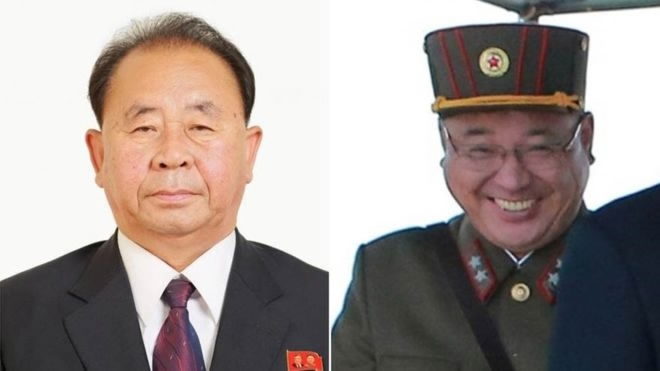The United States announced sanctions on two Democratic People's Republic of Korea (DPRK) officials behind their country’s ballistic missile program on Tuesday, while Russia reiterated an offer to mediate and ease tensions between Washington and Pyongyang.
The new US steps were the latest in a campaign aimed at forcing the DPRK – which has defied years of multilateral and bilateral sanctions – to abandon its nuclear weapons program which recently developed a long ranged missile capable of hitting the United States.
The US Treasury named the officials as Kim Jong Sik and Ri Pyong Chol. It said Kim was reportedly a key figure in DPRK’s efforts to switch its missile program from liquid to solid fuel, while Ri was reported to be a key official in its intercontinental ballistic missile (ICBM) development.
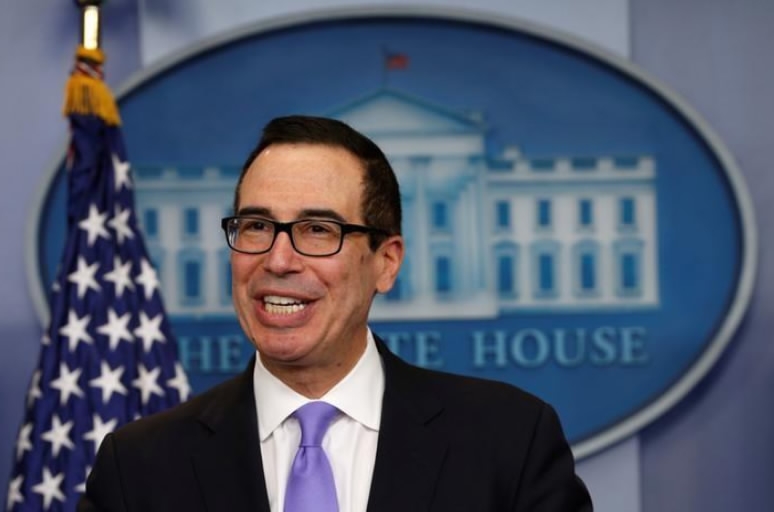
US Treasury Secretary Steven Mnuchin speaks at a press briefing at the White House in Washington, US, February 14, 2017. /Reuters Photo
US Treasury Secretary Steven Mnuchin speaks at a press briefing at the White House in Washington, US, February 14, 2017. /Reuters Photo
"[The] Treasury is targeting leaders of North Korea’s (DPRK) ballistic missile programs, as part of our maximum pressure campaign to isolate [the DPRK] and achieve a fully denuclearized Korean Peninsula,” Treasury Secretary Steven Mnuchin said in a statement.
The largely symbolic steps block any property or interests the two might have within US jurisdiction and prohibit any dealings by US citizens with them.
The move followed new United Nations sanctions announced last Friday in response to the DPRK’s November 29 test of an ICBM that Pyongyang said put all of the US mainland within range of its nuclear weapons. Those sanctions sought to further limit DPRK’s access to refined petroleum products and crude oil and its earnings from workers abroad.
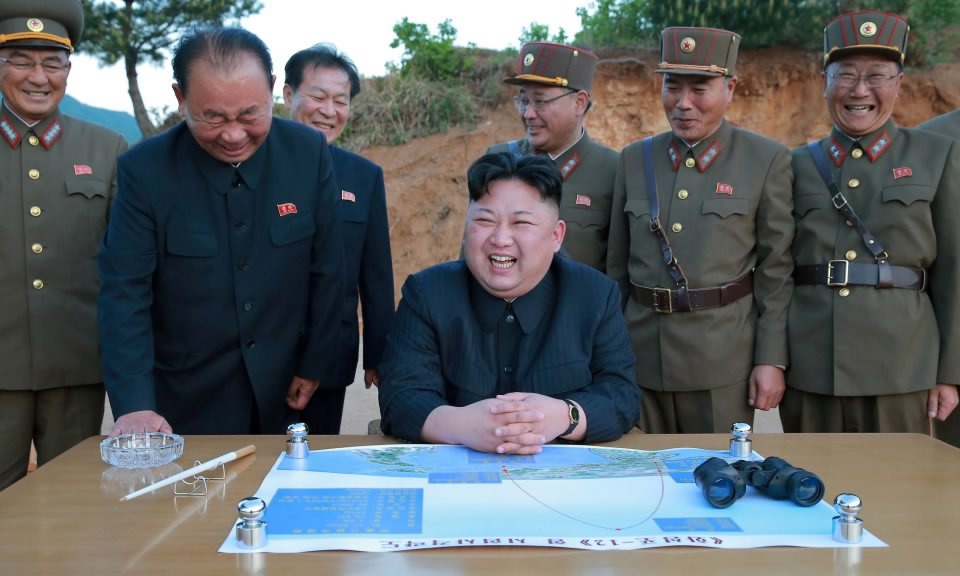
The DPRK's leader Kim Jong Un reacts during the long-range strategic ballistic rocket Hwasong-12 (Mars-12) test launch with Ri Pyong Chol (second left), Kim Jong Sik (center) and Jang Chang Ha (second right). /Reuters Photo
The DPRK's leader Kim Jong Un reacts during the long-range strategic ballistic rocket Hwasong-12 (Mars-12) test launch with Ri Pyong Chol (second left), Kim Jong Sik (center) and Jang Chang Ha (second right). /Reuters Photo
The DPRK declared the UN steps to be an act of war and tantamount to a complete economic blockade.
Kremlin ready to mediate
On Tuesday, the Kremlin, which has long called for the two sides to hold negotiations, said it was ready to act as a mediator if the US and the DPRK were willing for it to play such a role.
"Russia’s readiness to clear the way for de-escalation is obvious," Kremlin spokesman Dmitry Peskov told reporters.
Asked to comment on the offer, a spokesman for the US State Department, Justin Higgins, said the US "has the ability to communicate with North Korea (DPRK) through a variety of diplomatic channels," and added:
"We want the DPRK to understand that there is a different path that it can choose, however it is up to DPRK to change course and return to credible negotiations."
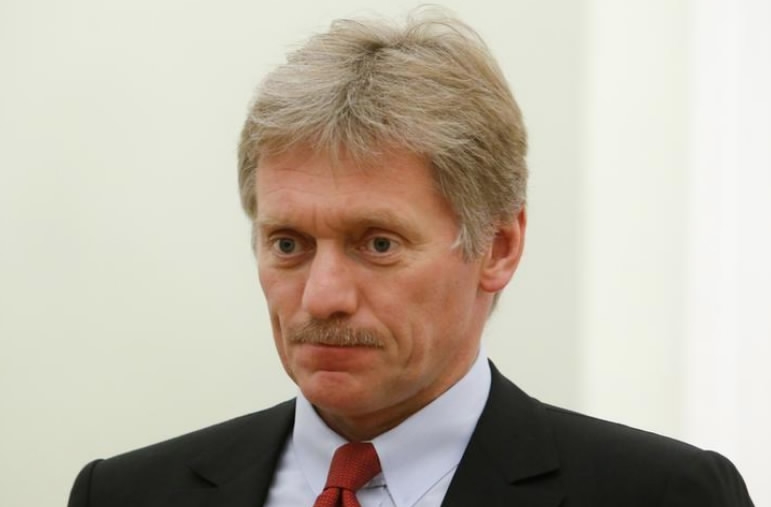
The Kremlin spokesman Dmitry Peskov attends a meeting of Russia's President Vladimir Putin with his Macedonian counterpart Gjorge Ivanov at the Kremlin in Moscow, Russia, May 24, 2017. /Reuters Photo
The Kremlin spokesman Dmitry Peskov attends a meeting of Russia's President Vladimir Putin with his Macedonian counterpart Gjorge Ivanov at the Kremlin in Moscow, Russia, May 24, 2017. /Reuters Photo
Russian Foreign Minister Sergei Lavrov, who made a similar offer on Monday, told US Secretary of State Rex Tillerson in a phone call on Tuesday that “Washington’s aggressive rhetoric” and beefing up of its military presence in the region had heightened tensions and was unacceptable, Russia’s foreign ministry said.
It said Lavrov underscored the need for “the fastest move to the negotiating process from the language of sanctions.”
Another State Department spokesman, Michael Cavey, said Washington remained open to talks, but the onus was on the DPRK “to take sincere and meaningful actions toward denuclearization and refrain from further provocations.”
He said the DPRK had "made clear through its words and actions it is not interested in dialogue at this stage."
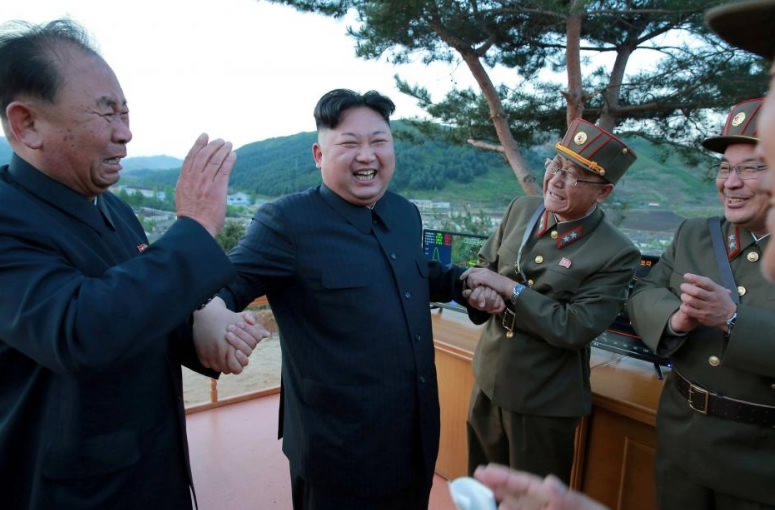
The DPRK's leader Kim Jong Un reacts with Ri Pyong Chol (L) in this undated photo released by the DPRK's Korean Central News Agency (KCNA) on May 15, 2017. /Reuters Photo
The DPRK's leader Kim Jong Un reacts with Ri Pyong Chol (L) in this undated photo released by the DPRK's Korean Central News Agency (KCNA) on May 15, 2017. /Reuters Photo
Republic of Korea’s (ROK) Unification Ministry forecast on Tuesday that the DPRK would look to open negotiations with the US next year while continuing to seek recognition as a de facto nuclear power.
Source(s): Reuters

